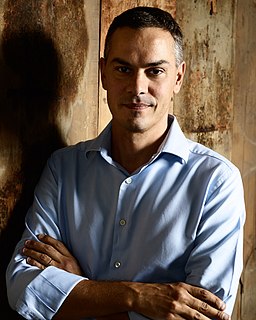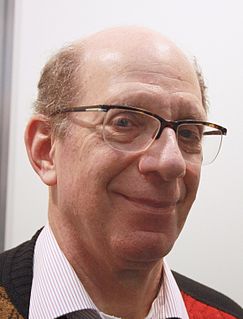A Quote by Mohsin Hamid
The monolithic view that many Americans have of Pakistani culture is as inaccurate as the monolithic view that many Pakistanis have of American culture.
Related Quotes
Poetry at large in America is naturally a reflection of the American system and culture. That's my possibly narrow view of it, or reductive view. But I think for as many portals for critical consciousness in the poetry world and in the American spirit that exist, there's also an over-arching, dominant mirroring, in poetry, of the corporate structure, the capitalist enterprise.
At some point, you realize you can't provide a perfectly monolithic description of a foreign culture's future any more than you can provide a monolithic description of your own hometown's future. Your choices about what to emphasize and what to leave out make all the difference, and ultimately, your fingerprints and biases and viewpoints are going to be all over the story.
Many teachers of the Sixties generation said "We will steal your children", and they did. A significant part of America has converted to the ideas of the 1960s - hedonism, self-indulgence and consumerism. For half of all Americans today, the Woodstock culture of the Sixties is the culture they grew up with - their traditional culture. For them, Judeo-Christian culture is outside the mainstream now. The counter-culture has become the dominant culture, and the former culture a dissident culture - something that is far out, and 'extreme'.
You witness the artists acting as witnesses, but they provide a point of view that's less monolithic. It's less official in a certain way. Many artists are speaking in the first person singular, as a reaction to dubbed-over media commentary. The thought is: "Enough with how we're represented by the media. Let me tell the story."
In terms of morality, we can be very narrowly focused. So convinced of our point of view and righteousness, and it just doesn't allow for circumstance or other people's points of view. It's very comforting because you don't have to self-reflect, you just are. There's a strain of that in American culture.
People take pride in being Irish-American and Italian-American. They have a particular culture that infuses the whole culture and makes it richer and more interesting. I think if we can expand that attitude to embrace African-Americans and Latino-Americans and Asian-Americans, then we will be in a position where all our kids can feel comfortable with the worlds they are coming out of, knowing they are part of something larger.







































